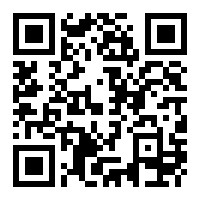Assessment of Knowledge, Attitudes, and Behaviors of Turkish Women on Breast and Cervical Cancer in Karabük Province, Turkey
Abstract
Keywords
Full Text:
PDFReferences
1. Cooper GM. Elements of Human Cancer, Jones & Bartlett Publishers; Canada, 1st edition,1992, p:4
2. Baykara O. Current Modalities in Treatment of Cancer, Balıkesır Health Sciences. 2016;5(3):154-65
3. WHO, Cancer Key facts 2018. date of access: 10,12,2019, access address: https://www.who.int/newsroom/fact-sheets/detail/cancer
4. IARC-International Agency for Research on Cancer. Breast Source: Globocan 2018, date of access: 01.11.2019, access address: http://gco.iarc.fr/today/data/factsheets/cancers/20Breast-fact-sheet.pdf.
5. Winchester DJ, Winchester DP, Hudis CA, Norton L. Breast Cancer, Wasworth Publishing Company, US, 2006 2 st edition, p:47-51.
6. Fasching P, Ekici AB, Adamietz BR, Wachter DL, Hein A, Bayer C, et al. Breast Cancer Risk – Genes, Environment and Clinics. Geburtsh Frauenheilk, 2011;71(12):1056-66.
7. Deniz S, Kurt B, Oğuzöncül AF, Nazlıcan E, Akbaba M, Nayır T. Knowledge, attitudes and behaviours of women regarding breast and cervical cancer in Malatya, Turkey. https://doi.org/10.1371/journal.pone.0188571
8. WHO. Human papillomavirus (HPV) and cervical cancer, Key facts. , date of access:12.11.2019, access address: https://www.who.int/en/news-room/fact-sheets/detail/human-papillomavirus(hpv)-and-cervical-cancer
9. Kanbur A, Çapık C, (2011) Cervical Cancer Prevention, Early Diagnosis-Screening Methods and Midwives / Nurses Role, University of Health Sciences Journal of Nursing. 2011; 61-72.
10. Aydoğdu SGM, Özsoy Ü. Cervical cancer and HPV, Androl Bul. 2018;20:25−29.
11. WHO, Comprehensive cervical cancer prevention and control: a healthier future for girls and women, WHO Library Cataloguing-in-Publication 2013. p:3-9 date of access: 05.11.2019 access address: https://apps.who.int/iris/bitstream/handle/10665/78128/9789241505147_eng.pdf;jsessionid=2 9B4BB90FDCE9E1F19EEC1EB49001457?sequence=3
12. Greene H. Cancer Prevention, Screening, and Early Detection, Advanced Oncology Nursing Certification Review and Resource Manual (Second Edition) Oncology Nursing Society, 2016. chapter 1:1-35.
13. Korkut Y. Assessment of knowledge, attitudes, and behaviors regarding breast and cervical cancer among women in western Turkey, Journal of International Medical Research. 2019;47(4):1660–66.
14. Kabacaoglu M, Oral B, Balci E, Gunay O. Breast and Cervical Cancer Related Practices of Female Doctors and Nurses Working at a University Hospital in Turkey, Asian Pacific Journal of Cancer Prevention, 2015;16(14):5869-73.
15. Kürtüncü M, Arslan N, Alkan I, Bahadır Ö. Knowledge, attitude and behaviors of the mothers of 10-15 year old daughters regarding cervical cancer and HPV vaccine, Journal of Human Sciences, 2018:15(2);1072-85.
16. Duman NB, Algıer L. Pınar G. Health beliefs of the female academicians about breast cancer and screening tests and the affecting factors. International Journal of Hematology and Oncology. 2013; 23 (4): 233-41.
17. Rosvold OE, Hjartaker A, Bjertness E, Lund E. Breast self-examination and cervical cancer testing among Norwegian female physicians Anation-wide comparative study. Social Science and Medicine. 2001;52(2):249-58.
18. Bray F, Ferlay J, Soerjomataram I, Siegel RL, Torre LA, Jemal A. Global cancer statistics, Globocan estimates of incidence and mortality worldwide for 36 cancers in 185 countries. CA Cancer J Clin. 2018;68(6):394-24.
19. Özdemir R, Çevik FT, Kes D, Karacalı M, Özgüner S. Level and Factors Associated with Participation in Population Based Cancer Screening in Safranbolu District of Karabuk. Iran J Public Health. 2020;49 (4):663-72.
20. Silva OE, Zurrida S, Veronesi U. Breast Cancer: A Guide For Fellows,Elsevier Saunders, Third Edition, 2005 p:21-23.
21. Naqvi AA, Zehra F, Ahmad R, Ahmad R, Ahmad N, Yazdani N, et al. Awareness, knowledge and attitude towards breast cancer, breast screening and early detection techniques among women in Pakistan. JPMA The Journal of the Pakistan Medical Association. 2018;68(4):576-586.
22. Rasool S, Iqbal M, Siddiqui A, Ahsan R, Mukhtar S, Naqvi S. Knowledge, Attitude, Practice towards Breast Cancer and Breast Self-examination among Female Undergraduate Students in Karachi, Pakistan JAMMR, Journal of Advances in Medicine and Medical Research. 2019;29(9):1-11.
23. Anderson BO, Yip CH, Smith RA, Shyyan R, Sener SF, Eniu A, et al. Guideline implementation for breast healthcare in low-income and middle-income countries: overview of the Breast Health Global Initiative Global Summit 2007. Cancer. 2008;113(8 Suppl):2221-43.
24. Parvani Z. Breast self examination, breast awareness and aractıces of systematıc review. The Professional Medical Journal. 2011;18(2):336-339.
25. Getu MA, Kassaw MW, Tlaye KG, Gebrekiristos AF. Assessment of breast selfexamination practice and its associated factors among female undergraduate students in Addis Ababa University, Addis Ababa, Ethiopia, 2016. Breast Cancer-Targets and Therapy. 2019;11:21–28.
26. Ahmed A, Zahid I, Ladiwala ZFR, Sheikh R, Memon AS. (2018) Breast self-examination awareness and practices in young women in developing countries: A survey of female students in Karachi, Pakistan. J Edu Health Promot. 2018;7:90.
27. Altunkan H, Akın B, Ege E. Awareness and Practice of Breast Self Examination (Bse) Among 20-60 Years Women, The Journal of Breast Health. 2008;4(2):84-9.
28. Dişcigil G, Şensoy N, Tekin N, Söylemez A. Breast Health: Knowledge, Behaviour And Performance In A Group Of Women Living In The Aegean Region, Marmara Medical Journal. 2007;20(1):29-36.
29. Brewer HR, Jones ME, Schoemaker MJ, Ashworth A, Swerdlow AJ. Family history and risk of breast cancer: an analysis accounting for family structure. Breast Cancer Res Treat. 2017;165(1):193-200.
30. Tazzite A, Jouhadi H, Saiss K, Benider A, Nadifi S. Relatıonshıp Between Famıly Hıstory Of Breast Cancer A nd Clınıcopathologıcal Features In Moroccan Patıents Ethiopian Journal Of Health Sciences.2013;23(2):150-57.
31. Özçam H, Çimen G, Uzunçakmak C, Aydın S, Özcan T, Bora B Evaluation of the knowledge, attitude, and behavior of female health workers about breast cancer, cervical cancer, and routine screening tests. İstanbul Med J. 2014; 15: 154-60.
32. Nelson HD, Tyne K, Naik A, Bougatsos C, Chan BK, Humphrey L, et al. Screening for breast cancer: an update for the U.S. Preventive Services Task Force. Ann Intern Med. 2009 Nov 17;151(10):727-37.
33. Silva O E, Zurrida S, Veronesi U, Breast Cancer: A Guide For Fellows,Elsevier Saunders, Third Edition, 2005, p:21-23.
34. Adegoke O, Kulasingam S, Virnig B. Cervical cancer trends in the United States: a 35-year population-based analysis. J Womens Health (Larchmt).2012;21(10):1031-7.
35. Bray F, Loos AH, McCarron P, Weiderpass E, Arbyn M, Møller H, et al. Trends in cervical squamous cell carcinoma incidence in 13 European countries: changing risk and the effects of screening, Cancer Epidemiol Biomarkers Prev. 2005;14(3):677-86.
36. Jassım, G, Obeıd, A, Al Nasheet HA. Knowledge, attitudes, and practices regarding cervical cancer and screening among women visiting primary health care Centres in Bahrain. BMC public health, 2018;18(1):1-6.
37. Heena H, Durrani S, AlFayyade I, Riaz M, Tabasim R, Parvez G et al. Knowledge, Attitudes, and Practices towards Cervical Cancer and Screening amongst Female Healthcare Professionals: A Cross-Sectional Study. Hindawi Journal of Oncology Volume 2019, Article ID 5423130, 9 pages https://doi.org/10.1155/2019/5423130
DOI: http://dx.doi.org/10.21109/kesmas.v15i4.3865
Refbacks
- There are currently no refbacks.































